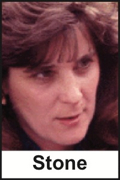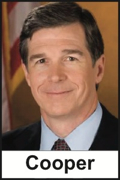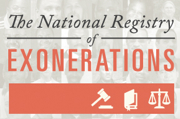Rascals case in brief
In the beginning, in 1989, more than 90 children at the Little Rascals Day Care Center in Edenton, North Carolina, accused a total of 20 adults with 429 instances of sexual abuse over a three-year period. It may have all begun with one parent’s complaint about punishment given her child.
Among the alleged perpetrators: the sheriff and mayor. But prosecutors would charge only Robin Byrum, Darlene Harris, Elizabeth “Betsy” Kelly, Robert “Bob” Kelly, Willard Scott Privott, Shelley Stone and Dawn Wilson – the Edenton 7.
Along with sodomy and beatings, allegations included a baby killed with a handgun, a child being hung upside down from a tree and being set on fire and countless other fantastic incidents involving spaceships, hot air balloons, pirate ships and trained sharks.
By the time prosecutors dropped the last charges in 1997, Little Rascals had become North Carolina’s longest and most costly criminal trial. Prosecutors kept defendants jailed in hopes at least one would turn against their supposed co-conspirators. Remarkably, none did. Another shameful record: Five defendants had to wait longer to face their accusers in court than anyone else in North Carolina history.
Between 1991 and 1997, Ofra Bikel produced three extraordinary episodes on the Little Rascals case for the PBS series “Frontline.” Although “Innocence Lost” did not deter prosecutors, it exposed their tactics and fostered nationwide skepticism and dismay.
With each passing year, the absurdity of the Little Rascals charges has become more obvious. But no admission of error has ever come from prosecutors, police, interviewers or parents. This site is devoted to the issues raised by this case.
On Facebook
Click for earlier Facebook posts archived on this site
Click to go to
Today’s random selection from the Little Rascals Day Care archives….
Click for earlier Facebook posts archived on this site
Click to go to
Today’s random selection from the Little Rascals Day Care archives….
A tormented wait for prosecutors to admit defeat
 July 25, 2012
July 25, 2012
“The terms of (Shelley Stone’s release on $342,000 bond) included an order to stay out of downtown Edenton so she would not run across any children – or parents of children – who had attended Little Rascals.
“One exception came two years ago, when she was allowed to attend her daughter’s high school graduation.
“Stone and her family live in Tyner, a few miles outside Edenton. They receive public assistance.
“‘I’ve had people say to me point blank: “Gee, Shelley, I would hire you, but I’m afraid I’d lose customers,”’ Stone says. ‘Now, when you can’t a job within 30 miles, that’s bad.’
“Prosecutors say they still have not decided whether to try her on 12 charges of sexual abuse, which could mean life in prison. Meanwhile, she waits….
“‘It’s been going on for seven years. Is it going to go on for another seven years, or 10 years or 20 years? Am I going to die with this still going on?…
“‘I worry every day. Are they going to come and say, “We’re going to take you to trial now”?’”
– Adapted from the Associated Press, Sept. 23, 1996
Three months later the state dropped all charges against Stone (and Robin Byrum and Darlene Harris).
As in other Little Rascals cases, Nancy Lamb attributed the dismissals to concern for the child-witnesses and to limited resources in the DA’s office, not to any belated recognition of the defendants’ innocence. “We didn’t bring charges in 1989 and 1990 thinking that these people weren’t guilty,” she told the AP. “Why would we do such a thing? We had enough evidence all along to convict all three, or we would not have brought charges.”
But Lamb needn’t have been too disappointed. After all, how many juries would’ve rendered harsher punishment to these three innocent young women than the seven years of torture the state inflicted?
‘Cooper stopped far short of apologizing….’
 Aug. 26, 2013
Aug. 26, 2013
“Attorney General Roy Cooper stopped far short of apologizing to (Greg Taylor and Floyd Brown). He said that the SBI had better investigative practices now and that ‘It was in the best interest of the state to settle these cases.’
“And maybe in the best interest of justice, too?
“These two men lost their youths thanks to agents of the SBI. That is an outrage for which they can never be adequately compensated. State officials have been encouraged to offer profuse apologies, and that is not unreasonable, though it’s a little late for it now….
“But let no one involved in prosecuting these two men believe that the debt for their ‘mistakes’ is paid in full.”
– From “Two former prisoners’ lives, valued,” editorial in the News & Observer (Aug. 15, 2013)
As compensation for their flagrantly corrupted prosecution, Taylor received about $4.5 million from the state, Brown about $8 million. Attorney General Cooper seems to find such an outlay easier to swallow than offering an apology – providing yet another example of the “Mistakes Were Made (But Not By Me)” approach to accountability.
By contrast, in 2007 the Duke lacrosse case moved Cooper to give the defendants a “statement of innocence” and to at least brush up against remorse:
“In the rush to condemn, a community and a state lost the ability to see clearly…. I think a lot of people owe a lot of apologies to a lot of people.”
But in 2009, after yet another wrongful conviction settlement – this one for $3.9 million – Cooper declined to give murder defendant Alan Gell a statement of innocence. ”The Duke case was a clear case, very unusual,” he explained. “There was no crime committed….”
“No crime committed”? Why, I know another “clear case, very unusual” that precisely meets that standard!
Innocence, alas, does not guarantee exoneration
 June 11, 2012
June 11, 2012
After discovering the National Registry of Exonerations, I was happy to see that it lists Little Rascals defendants Bob Kelly and Dawn Wilson, whose convictions were overturned on appeal.
But what about Betsy Kelly and Scott Privott, who both finally accepted plea deals while maintaining their innocence, and Robin Byrum, Darlene Harris and Shelley Stone, all of whom waited years for prosecutors to drop charges?
The registry, a joint project of the University of Michigan Law School and the Center on Wrongful Convictions at Northwestern University, speaks unequivocally about “a wave of child sex abuse hysteria that swept the country….
“Starting in the early 1980s, some prosecutors, therapists and child welfare workers became
convinced that child sex abuse on a massive scale was rampant in their communities. They
believed that most of the victims were too afraid or embarrassed to discuss the abuse, so they
worked to overcome this fear and reluctance by using highly suggestive, persistent and
unrelenting questioning techniques when interviewing the young children.
“It worked. Some of the children complied and accused parents, day-care workers and adult acquaintances of numerous horrifying and bizarre acts. This led to a series of extraordinary prosecutions, many involving allegations of satanic rituals.”
Unfortunately, this acknowledgment of the moral panic doesn’t earn the remaining “Edenton 5” a listing in the registry. Here’s why, according to research assistant Ted Koehler:
“For a case to count as an exoneration for our purposes, a person convicted of a crime must be declared factually innocent by a government official or organization with authority to make such a declaration.
“If this has not happened, a person can still be exonerated if the person was relieved of all consequences of the criminal conviction by a government official with proper authority, through pardon, acquittal of the charges for which the person was originally convicted, or dismissal of those same charges. In such a case, the pardon, acquittal, dismissal or posthumous exoneration must have been the result, at least in part, of evidence of innocence that either (i) was not presented at the trial at which the person was convicted; or (ii) if the person pled guilty, was not known to the defendant or to the defense attorney and the court at the time the plea was entered.
“The Edenton case was a terrible witch hunt. Regretfully, though, because they do not meet the criteria above, Kelly’s and Privott’s guilty pleas and the dropped charges against Byrum, Stone, and Harris do not fit our definition of an exoneration, and are not listed on the registry for that reason.”
I understand the registry’s need to set the bar so high. But what a curious twist that the defendants’ only hope for exoneration lies with the same state that so unjustly prosecuted them.
For therapist, creating memory is easy task
 June 13, 2012
June 13, 2012
“Actually, making a false memory is pretty easy.
“(Psychologist Elizabeth) Loftus describes a father convincing his daughter she’d gotten lost in a mall when she was five years old. At first, the daughter denied any memory of the event, but as the father provided more fake details – ‘Don’t you remember that I told you we would meet at the Tug Boat?’ – the daughter began to ‘remember’ and even provide details of her own. Eventually when her father said, ‘I was so scared,’ she responded, ‘Not as scared as I was!’…
“You can probably imagine the implications of false memory in the courtroom or on the therapist’s couch (which famously leads to the courtroom)….”
– From “How You Remember, How You Decide: Memory Part II”
by Garth Sundem in Psychology Today (October 6, 2010)











0 CommentsComment on Facebook